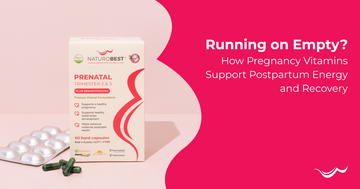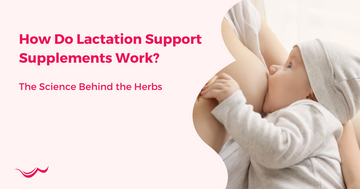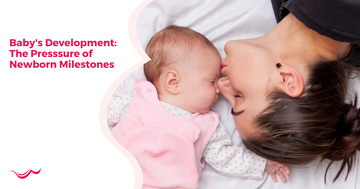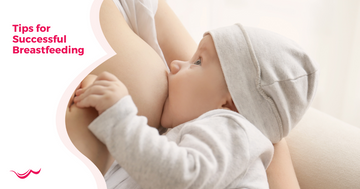Recovering from Delivery: What Every New Mum Needs to Know
by NaturoBest Naturopath Team on May 06, 2025
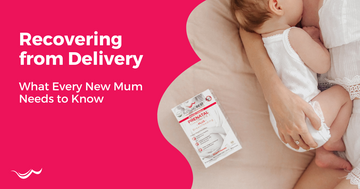
Bringing a baby into the world is an incredible experience. But for many women, the reality of postpartum recovery is far from the blissful moments often portrayed. Behind the scenes, there's pain, bleeding, exhaustion, and the silent weight of emotional upheaval.
If you're navigating the fourth trimester and wondering whether what you're feeling is normal—you're not alone.
The Truth About Postpartum Bleeding and Pain
Let’s start with what most people don’t tell you.
Postpartum bleeding, or lochia, can last for up to six weeks. It begins as bright red, heavy bleeding and gradually turns pink, brown, and then yellow-white. This is your body shedding the uterine lining and healing the wound where the placenta was attached.
Pain is also a part of postpartum recovery, especially in the first few days. Whether you had a vaginal delivery or caesarean, cramping, perineal discomfort, or incision soreness are common. This is your uterus contracting and your tissues repairing.
But just because it's common doesn't mean you should suffer in silence.
Pelvic Floor Recovery: Why It Matters
Childbirth places immense pressure on your pelvic floor muscles. These are the muscles that support your bladder, uterus, and bowels. When weakened, they can lead to incontinence, prolapse, or pain during intercourse.
Gentle pelvic floor exercises, often called Kegels, can help rebuild strength. But knowing when to start is key—rushing it can do more harm than good. A women’s health physiotherapist can guide you safely.
Supplying your body with the nutrients it needs can also support tissue repair and hormonal balance, which is why nutritional support during this time is non-negotiable.
Our Prenatal Trimester 2 & 3 Plus Breastfeeding is designed specifically for this entire period, providing key nutrients like iron, choline, zinc, iodine, and activated B vitamins to support your body while it recovers. It can be used in the second and third trimesters, as well as after birth, to replenish nutrients, whether you are breastfeeding or not.
The Silent Struggle: Postpartum Depression
One in seven women experience postpartum depression (PPD). It's more than the "baby blues."
While it's normal to feel emotional in the first two weeks post-birth, persistent sadness, anxiety, irritability, or detachment beyond that may be signs of PPD. Lack of sleep, hormonal changes, nutrient depletion, and the sudden shift in identity can all contribute.
You don't need to carry this alone. Talk to your GP, midwife, or a mental health professional. And don’t underestimate the power of physical health in supporting mental wellbeing.
What Recovery Can Really Look Like
Now imagine this instead:
You wake up feeling more energised. Your body feels stronger. Your mind is clearer. You're reconnecting with your partner without pain. You're soaking up every second with your new baby.
This isn’t a dream—it’s what recovery can look like when your body is given the right tools and time.
Our Birth Prep & Recovery formula, with raspberry leaf and squaw vine, supports uterine tone and assists uterine recovery after birth. Traditionally used in Western herbal medicine, these astringent herbs help tighten and repair tissue. It's not just about the uterus—it's about restoring your whole self.
Pair this with nourishing food, emotional support, and realistic expectations, and you create the ideal environment for healing.
Your Recovery Is Worth Prioritising
Postpartum recovery isn't a luxury. It's a necessity.
You just created a new life. Your body deserves replenishment, your mind deserves peace, and you deserve to feel good.
So take the next step. Explore the formulas designed to support your body through the final stage of pregnancy and into motherhood:
Because this chapter is just the beginning—and you deserve to start strong. Embrace the journey ahead with confidence and know that support is always available when you need it.

